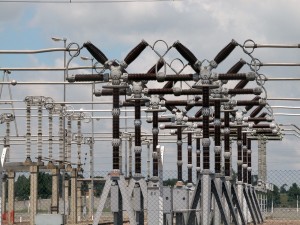
As the nation grapples with inadequate electricity supply, the power sector suffered a loss of 2,746 megawatts (mw) and N34.60 billion, in the month of March due to system collapse and gas constraints, according to the daily operational report of the Nigerian Electricity System Operation obtained by Sweetcrude.
This shows an improvement over the 4,276mw loss recorded in February, but a worsened situation in terms of revenue when compared with the N24.04 billion loss recorded also in February.
However, there are indications that the power situation may get further worse as Egbin Power Plc, which has the biggest power plant in Nigeria and one of the biggest single power generating stations in Africa, has threatened to shut down operations due to non-settlement of N100 billion debt, inadequate gas supply and inefficiency in operations of the Transmission Company of Nigeria (TCN).
In March several losses were recorded in the power generation sub-sector as follows: Egbin which lost functionality when one turbine tripped due to system surge; Gbarain’s single turbine tripped on reverse power; Transcorp Ughelli (Delta) lost two turbines due to high frequency; just as Omotosho NIPP lost one turbine due to gas constraints; Sapele and Odukpani were shut down due to high frequency constraints and mechanical problems. System Collapse was also recorded in February at Jebba G/S 2G1, Sapele, Delta, Alaoji, and Okpai. Within the period, the following circuits were reported to have tripped off, 330kV Sapele/Delta (cct S4G) at both ends, 330kV Benin/Onitsha lines 1 & 2 (ccts B1T & B2T) at Onitsha end, 330kV AlaojiGS/Alaoji TS line 1 (cct L7A) at Jebba.
Managing Director of Egbin Power Plc, Mr. Dallas Peavey, said that the country may experience blackout in April as liquidity, transmission and gas supply issues threatened its operations.
Peavey explained that Egbin Power plant was being forced to gradually shutdown due to adverse effect of grid instability that endangers its turbines. He said, “We owe the gas companies and have others like our technical partners to pay, and importantly our lenders, the banks. “We have made massive investments in making the plant readily available to generate electricity sustainably.
Unfortunately, we can’t break even due to the gross inefficiency in the value chain. “The government guaranteed to pay us for every megawatt we generate and sell to Nigerian Bulk Electricity Trading (NBET), but they have not done that. “We just got paid for the month of December, 2016, three months later and we were only paid a paltry 28 per cent out of the total of the verified and accepted invoice for that month.
That is how the outstanding debts kept accumulating for three and half years now.” He also explained that these unbearable business operating circumstances and conditions will force the company to shut down any moment.
He stated: “Let me be honest, if Egbin fails, it’s going to be dark as Egbin provides close to 30 per cent of Nigeria’s power, so let the required intervention be completed and urgently too.” According to him, “Egbin power plant is one of the biggest single power generating stations in Africa, with an installed capacity of 1,320mw consisting of six units of 220mw each.
“Following the conclusion of the government’s privatization exercise in November 2013, the consortium formed by the partnership between New Electricity Distribution Company and the Korean Electric Power Corporation (NEDC/KEPCO) acquired Egbin Power plc.”
